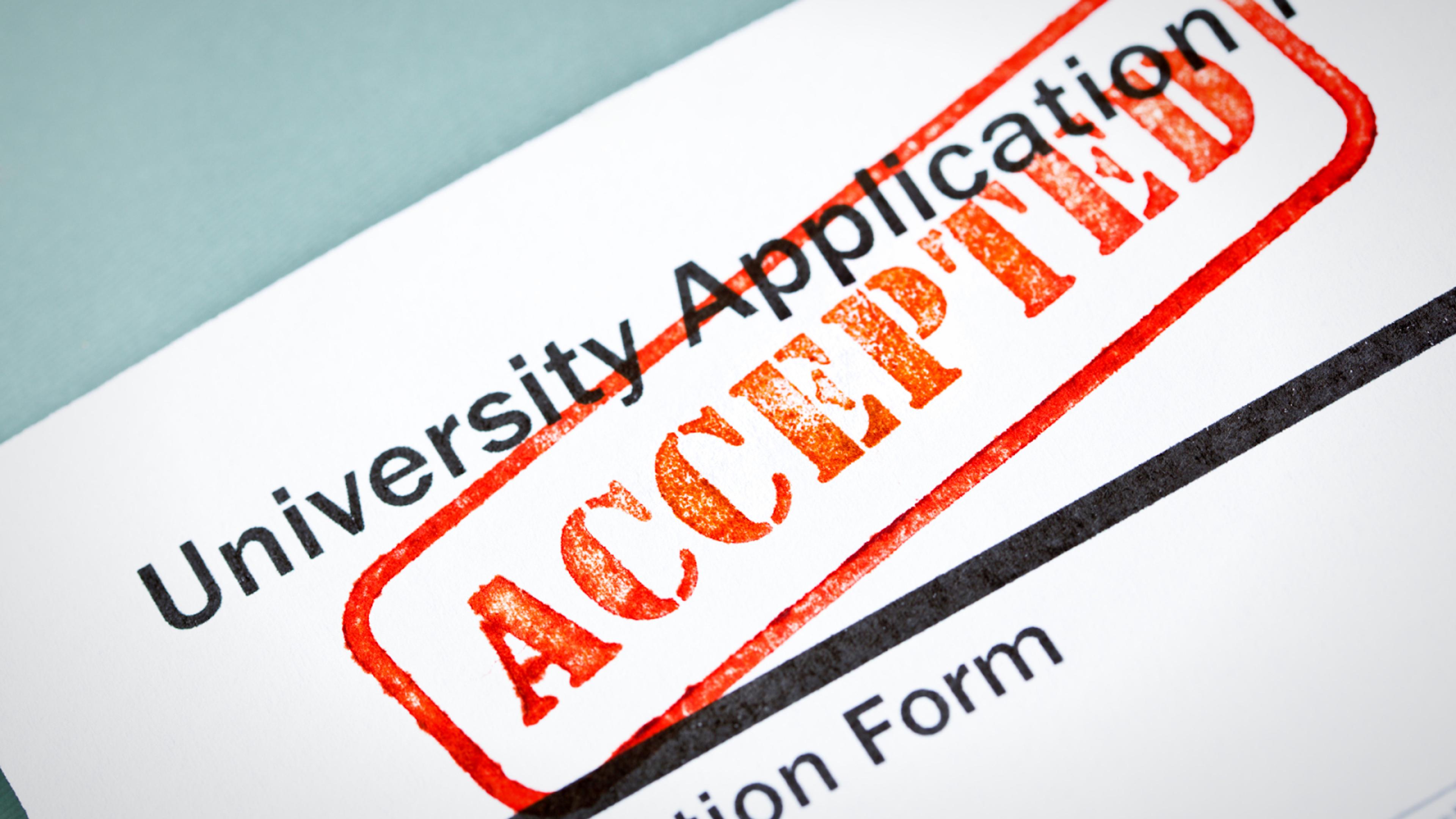
Join a free event
Learn from top coaches and industry experts in live, interactive sessions you can join for free.
Table of Contents
Pursuing an MBA in Accounting is a strategic move for professionals aiming to advance into leadership roles within the accounting and finance sectors. With the accounting field projected to grow by 10% over the next decade, an MBA provides the necessary skills and credentials to excel in this competitive industry. This guide offers a comprehensive overview of the top 10 MBA programs for accounting, detailing their curricula, career outcomes, and unique features to help you make an informed decision.
Is an MBA in Accounting Worth It?
An MBA in accounting is a strategic investment for those aiming to advance their careers in the accounting field. It combines advanced business leadership skills with in-depth accounting expertise, preparing graduates for high-level roles in various industries.
Career Advancement
- Leadership Roles: Positions such as Chief Financial Officer (CFO), Finance Director, and Accounting Manager.
- Specialized Fields: Opportunities in forensic accounting, corporate accounting, and managerial accounting.
- Accounting Firms: Enhanced prospects in joining or advancing within the Big Four accounting firms (Deloitte, PwC, EY, KPMG).
- Preparation for the CPA Exam: Many programs prepare students to become certified public accountants, opening up various career opportunities in financial accounting and the option to work independently.
Salary Potential
- Competitive Earnings: MBA graduates in accounting often command higher salaries compared to those with only an undergraduate degree.
- Negotiating Power: The combination of business acumen and accounting skills positions graduates to negotiate higher salaries and benefits.
Industry Demand
- Growing Industry: The Bureau of Labor Statistics projects continued growth in accounting and auditing jobs.
- Versatile Skill Set: Skills are applicable across various sectors, including finance, healthcare, technology, and government.
How to Choose the Best Accounting MBA Program
Selecting the right MBA program is crucial. Here are key factors to consider:
Accreditation
- AACSB International: Look for programs accredited by the Association to Advance Collegiate Schools of Business.
- Regional Accreditation: Ensure the university has regional accreditation for overall educational quality.
Curriculum and Specializations
- Core Courses: Programs should offer core business courses in strategic management, organizational behavior, and financial management.
- Accounting Concentration: Specialized courses in financial accounting, managerial accounting, taxation, and auditing.
- Financial Statement Analysis: Courses focusing on the principles and practices of analyzing corporate financial reports, emphasizing the interpretation of financial data and its relevance in business decision-making.
- CPA Alignment: Curriculum that meets the educational requirements for the CPA exam.
Faculty Expertise
- Experienced Professors: Faculty with professional backgrounds in accounting, finance, and corporate leadership.
- Research Opportunities: Access to faculty-led research projects in accounting and finance.
Career Services and Networking
- Recruitment Programs: Partnerships with top accounting firms and corporations for internships and job placements.
- Alumni Network: A strong network of graduates in leadership positions within the accounting field.
Location
- Proximity to Financial Centers: Schools located near major financial hubs provide better internship and employment opportunities.
- Industry Connections: Access to local businesses and organizations for practical learning experiences.
Flexibility
- Program Formats: Options for full-time, part-time, executive, and online MBA programs to suit different schedules.
- Duration: Programs ranging from one-year accelerated courses to traditional two-year programs.
The Top 10 MBA Programs for Accounting
1. Harvard Business School
| HBS Acceptance Rate | 9% |
| Number of Applicants | 9,856 |
| Class Size | 930 |
| Tuition and Fees (Full-Time) | $74,910 per year |
Harvard’s reputation as one of the most prestigious business schools is well-deserved. Its rigorous curriculum, coupled with its world-class faculty, makes Harvard an excellent choice for those looking to lead in the accounting and finance sectors. The program offers a comprehensive accounting foundation that integrates core business disciplines like leadership, strategic thinking, and global market dynamics.

Key Features:
- Case Method: Harvard’s case study approach pushes students to apply accounting principles in real-world business situations, refining critical thinking and decision-making.
- Networking: Access to an extensive alumni network that spans industries globally. Graduates frequently move into top roles at major corporations, consulting firms, and accounting firms like Deloitte and PwC.
- Leadership Development: Harvard places a strong emphasis on leadership training, helping graduates excel in senior management and CFO roles.
Advice for Applicants:
Prepare for an intensely competitive application process. Focus on strong leadership potential, clear career goals, and a deep commitment to academic excellence. Demonstrating your ability to manage complex situations and your interest in long-term strategic thinking will help you stand out.
If you’re looking to get a better understanding of HBS, you’re in luck! Read our articles on all things HBS here:
- Applying to Harvard Business School: Story of a Current Student
- Harvard Business School MBA Essay: 5 Things to Do
- Harvard Business School — MBA Program & Application Overview
2. Stanford Graduate School of Business
| GSB Acceptance Rate | 5-6% |
| Number of Applicants | 7,295 |
| Class Size | 424 |
| Tuition and Fees (Full-Time) | $79,860 per year |
Stanford’s innovative approach to business education places a heavy focus on entrepreneurship and transformative business practices. For accounting students, this means a foundation in traditional financial principles paired with the tools to drive growth and adapt to evolving industries. Stanford’s MBA program attracts students with a visionary mindset, fostering an entrepreneurial spirit that can revolutionize accounting processes.

Key Features:
- Entrepreneurial Focus: Students learn how to apply accounting to start-ups, high-growth companies, and emerging sectors like fintech.
- Tech Integration: Close proximity to Silicon Valley allows students to incorporate the latest in technology and innovation into their accounting practices.
- Cross-disciplinary Approach: Collaboration with other departments, especially in technology management, allows for a broader perspective on how accounting intersects with modern business.
Advice for Applicants:
Stanford values applicants who are visionaries, not just number-crunchers. Showcase your entrepreneurial drive, innovation, and ability to see the big picture. Highlight any previous experience in startups, financial technology, or projects that involved transforming traditional business models.
For more info on Stanford’s Graduate School of Business, check out:
- Stanford GSB MBA Curriculum - Core, Electives, & Specializations
- Stanford GSB MBA Essays: Prompts, Tips, & Examples
- Stanford GSB: MBA Tuition & Fees Breakdown
- The 5 Best Classes at Stanford's Graduate School of Business
- Stanford GSB — MBA Program & Application Overview
3. Wharton School of the University of Pennsylvania
| Wharton Acceptance Rate | 11-12% |
| Number of Applicants | 7,322 |
| Class Size | 866 |
| Tuition and Fees (Full-Time) | $79,800 per year |
Wharton is known for its exceptional accounting faculty and quantitative rigor in accounting courses, offering one of the strongest accounting curricula available. The school’s networking power and extensive connections in the finance and accounting industries provide graduates with excellent job placement rates, particularly in prestigious firms and corporations.

Key Features:
- Integrated Approach: Wharton’s accounting program integrates closely with finance, making it ideal for students looking to develop expertise in both fields.
- Global Network: One of the largest and most influential alumni networks, providing ample career opportunities.
- Corporate Connections: Wharton has established relationships with top firms such as Goldman Sachs, JP Morgan, and the Big Four accounting firms, making it easier for graduates to transition directly into high-level positions.
Advice for Applicants:
Wharton seeks candidates with a strong academic track record, leadership potential, and an interest in finance. Highlight any previous leadership roles and demonstrate how your educational background and skills align with Wharton’s rigorous approach to both accounting and broader business challenges.
Read through some more of our resources on Wharton here:
- Wharton MBA Application Essays: Prompts & Expert Tips
- The Wharton School — MBA Program & Application Overview
4. Booth School of Business, University of Chicago
| Booth Acceptance Rate | 12% |
| Number of Applicants | 5,125 |
| Class Size | 632 |
| Tuition and Fees (Full-Time) | $80,961 per year |
Known for its analytical rigor, Booth’s MBA program is rooted in a data-driven approach to business education. For accounting students, this means mastering financial reporting while also gaining expertise in advanced financial analysis and valuation methods. Booth an accounting master's focus on quantitative skills prepares graduates to thrive in complex financial environments.

Key Features:
- Flexibility: Booth offers one of the most flexible curricula of any top MBA program, allowing students to choose from a broad range of electives to tailor their studies.
- Financial Economics: The program is designed for students interested in financial economics and accounting theory, providing deep dives into market behaviors and financial strategies.
- Quantitative Focus: The school’s emphasis on quantitative analysis means that graduates are exceptionally skilled in financial modeling, forecasting, and risk assessment.
Advice for Applicants:
If you have a strong background in mathematics, finance, or economics, emphasize how your technical skills complement Booth’s emphasis on rigorous analysis. Applicants should demonstrate a passion for problem-solving and data-driven decision-making.
For a better overview of Chicago Booth’s curriculum and admissions process, read through our resources here:
- Chicago Booth MBA Essays: 5 Expert Tips
- Chicago Booth MBA Class Profile: Key Insights & Takeaways
- How to Answer the “Why Booth?” Interview Question
- Chicago Booth — MBA Program & Application Overview
5. Sloan School of Management at MIT
| Sloan Acceptance Rate | 17.8% |
| Number of Applicants | This year's numbers have not been released |
| Class Size | 433 |
MIT Sloan is renowned for its cutting-edge approach to business education, blending accounting expertise with advanced technology and innovation. The school provides a unique cross-disciplinary education that prepares graduates for leadership roles in industries like fintech, financial data and consulting, and data-driven accounting solutions.

Key Features:
- Technology Integration: Sloan’s approach to accounting includes the use of machine learning and artificial intelligence in financial forecasting and analysis.
- Innovation at Scale: Students gain insights into how accounting principles can scale in global, tech-driven markets.
- Action Learning: Sloan emphasizes practical learning experiences through consulting projects, enabling students to apply accounting theories to solve real business problems.
Advice for Applicants:
MIT Sloan is ideal for those with a strong interest in technology and innovation. Applicants should highlight their experience with tech-based accounting solutions or their potential to drive digital transformation in the accounting field.
For more information on MIT Sloan, read our guides:
6. Haas School of Business, University of California, Berkeley
Haas stands out for its emphasis on ethical leadership and its focus on sustainable business practices. The accounting program at Haas ensures that graduates understand both the technical side of accounting and the importance of ethical decision-making in today’s corporate environment.

Key Features:
- Sustainability Focus: Haas integrates principles of sustainability into its business curriculum, which is particularly relevant for those seeking leadership roles in companies focused on corporate social responsibility (CSR).
- Collaborative Learning: The program fosters a collaborative environment, encouraging students to work closely with peers from different business disciplines.
- Global Perspective: Haas places a strong emphasis on global business practices and provides opportunities for students to study abroad or participate in international internships.
Advice for Applicants:
Berkeley Haas seeks applicants with a commitment to ethical leadership and a strong interest in sustainability. If your past experience involves working in industries that focus on social responsibility or ethical financial practices, be sure to highlight this in your application.
7. Columbia Business School
| Columbia Acceptance Rate | 15.26% |
| Number of Applicants | 5,895 |
| Class Size | 900 |
| Tuition and Fees (Full-Time) | $84,496 per year |
The MBA program offers an outstanding balance between traditional accounting and practical business application. Located in the heart of New York City, Columbia provides unparalleled access to industry leaders, especially in finance, banking managerial finance, and accounting.

Key Features:
- Proximity to Wall Street: Columbia’s location offers direct access to the financial capital of the world, providing students with unparalleled internship and employment opportunities.
- Real-World Learning: Columbia’s MBA program emphasizes hands-on learning through internships, consulting projects, and access to a variety of business networks.
- Dual Focus: Students can focus on accounting while also gaining expertise in other business areas such as strategy and entrepreneurship.
Advice for Applicants:
Columbia values applicants who show strong career potential and a clear vision for their future in accounting or finance. If you have a background in accounting specializing in financial services, make sure to highlight how you plan to leverage Columbia’s networks and resources to advance your career.
Read more articles on Columbia Business School’s MBA programs here:
8. School of Business, Dartmouth College
| Acceptance Rate | 22-23% |
| Class Size |
Tuck’s MBA program is known for its close-knit community and strong emphasis on collaborative learning. The school provides a comprehensive accounting education while fostering the development of critical thinking and communication skills essential for leadership roles.

Key Features:
- Small Class Size: Tuck’s intimate class sizes encourage close interactions with professors and classmates, leading to personalized learning and networking.
- Cross-Disciplinary Approach: Tuck offers opportunities to combine accounting knowledge with other areas of business, such as marketing and operations.
- Leadership Focus: Tuck emphasizes leadership development, making it ideal for those interested in taking on executive roles in finance or accounting.
Advice for Applicants:
If you prefer a tight-knit community and personalized attention, Tuck might be the right fit. Applicants should focus on teamwork, collaboration, and leadership potential when preparing their application.
Read more on Dartmouth's MBA program here:
- Dartmouth Tuck MBA Essays Guide: Overview, Tips & Examples
- How to Nail Your Dartmouth Tuck MBA Interview: Overview, Questions, and Tips
9. Stern School of Business, New York University
| Stern Acceptance Rate | 25.7% |
| Number of Applicants | 4,550 |
| Class Size | 352 |
| Tuition and Fees (Full-Time) | $84,180 per year |
NYU Stern is one of the top business schools with a strong emphasis on finance and accounting. Its location in New York City, a global financial hub, offers students unparalleled access to top-tier firms in accounting, finance, and consulting. Stern is renowned for its focus on integrating financial strategy with practical business knowledge, making it an excellent choice for aspiring accountants who want to work in high-stakes, fast-paced environments.
Key Features:
- Proximity to Wall Street: Stern’s location allows students to network and intern with top firms like Goldman Sachs, Barclays, and the Big Four accounting firms.
- Specialized Accounting Tracks: Stern offers specialized tracks within its MBA program that allow students to dive deep into areas such as corporate finance, financial markets, and taxation.
- World-Class Faculty: Stern’s accounting faculty are thought leaders in the field, and their expertise ensures that students receive a cutting-edge education in both theoretical and applied accounting practices.
Advice for Applicants:
Stern seeks applicants with strong financial acumen and an interest in high-level strategy. Applicants with experience in investment banking, corporate finance, or accounting consulting will be strong contenders. Be sure to showcase your quantitative skills and how you plan to leverage Stern’s location and resources to build a successful career in finance or an accounting career.
For a better overview of NYU Stern’s programs, read our articles here:
- How to Nail the NYU "Pick Six" MBA Application Essay
- How to Nail Your NYU Stern MBA Interview: Overview, Questions, & Tips
10. Kellogg School of Management, Northwestern University
| Kellogg Acceptance Rate | 20-21% |
| Number of Applicants | This year's numbers have not been released |
| Class Size | 524 |
Kellogg is known for its collaborative culture and its focus on integrating accounting with other core business disciplines, such as marketing, strategy, and operations. This well-rounded approach allows students to graduate not only with technical accounting skills but also with the ability to make data-driven business decisions in a variety of contexts. Kellogg's strong reputation in both finance and general management makes it a great choice for those who want to take on leadership roles across industries.
Key Features:
- Cross-Disciplinary Integration: Kellogg encourages students to take courses outside of accounting, allowing them to gain expertise in fields like marketing and entrepreneurship, which can help integrate accounting insights into broader business strategies.
- Collaborative Environment: The collaborative culture at Kellogg means that students learn from each other, fostering skills in teamwork and communication that are essential for leadership positions.
- Leadership Training: Kellogg offers specialized leadership programs that help students build skills to manage complex business challenges and drive organizational success.
Advice for Applicants:
Kellogg values applicants who are team-oriented and eager to collaborate across functions. Applicants should emphasize their ability to work in cross-functional teams and their commitment to leadership development. If you have experience in roles that require strategic decision-making or managing complex projects, be sure to highlight these accomplishments in your application.
Check out more on Kellogg’s MBA program with the following resources:
Where Can I Start?
1. Research and Shortlist Programs
- Identify Your Goals: Think about your career direction. Do you want to focus on public accounting, corporate finance, or financial consulting? Narrow down programs that offer courses or specializations aligned with your goals.
- Compare Programs: Look at the curriculum, faculty, and career services of each program. Schools with strong accounting networks and internship opportunities in your desired field will be key.
2. Prepare for Admissions
- Standardized Tests: Most schools require the GMAT, though some accept the GRE. Focus on preparing for the quantitative section since it's crucial for accounting.
- Prerequisite Courses: If you don’t have an accounting background, take some foundational courses in accounting or finance before applying.
3. Application Materials
- Resume: Update your resume to highlight any accounting-related work, leadership roles, and achievements that show your potential.
- Letters of Recommendation: Choose recommenders who can speak to your professional experience and potential in accounting roles.
- Personal Statement: Write a focused essay about why you want an MBA and how the program aligns with your career aspirations in accounting.
4. Financial Planning
- Tuition Costs: Research each program’s cost and make a budget. Consider a return on investment based on your career goals.
- Scholarships and Aid: Look into financial aid options, including scholarships and assistantships offered by the school.
5. Networking
- Attend Events: Join webinars, info sessions, or campus tours to prepare students to get a feel for the program.
- Connect with Alumni: Reach out to alumni or current students through LinkedIn to learn more about their experiences and advice.
6. Gain Relevant Experience
- Work Experience: If you’re not already working in accounting, try to get relevant experience through internships or entry-level roles.
- Certifications: Consider certifications like the Certified Management Accountant (CMA) or Certified Public Accountant (CPA) if they align with your goals.
Read: The Complete MBA Application Guide
Key Takeaways
- An MBA in accounting can lead to leadership roles in corporate accounting, financial analysis, and management positions at top accounting firms.
- These programs combine core business administration courses with specialized accounting knowledge, providing a strong foundation in both management and accounting.
- Many accounting MBA programs align with the requirements for the CPA exam, helping students prepare for certification.
- Top programs offer robust alumni networks, career services, and connections to industry leaders, opening up valuable opportunities for internships and job placements.
Final Thoughts
When applying to these MBA programs, it is essential to thoroughly research each school's accounting curriculum, faculty expertise, and alumni network to ensure alignment with your career goals. Additionally, consider attending information sessions or reaching out to current students or alumni to gain insights into the program and gather valuable application advice.
The key to making the right choice is to identify what aligns best with your career aspirations, personal learning style, and professional network preferences. Prepare thoroughly for the application process, and remember, that the right MBA program will equip you with the skills, knowledge, and connections to succeed in a competitive global marketplace.
Work with MBA Admissions Coaches
Working with an expert MBA admissions coach can give you the personalized guidance you need to stand out in a competitive field. From perfecting your application to acing your interviews, our coaches are here to help you succeed.
Related Articles
- MBA Application Deadlines of the Top 25 Business Schools (2024-2025)
- Top 20 Questions to Ask During Your MBA Application Interview
- The GSB MBA Waitlist Strategy
- Rejected From an MBA Program? Here's What to Do Next
- An Expert Coach's Top Tips for Non-Traditional MBA Applicants
- A Guide to the Columbia Business School Essays (2023-2024)
- Top MBA Programs for Product Management
- Top MBA Programs for Investment Banking
- Top 25 Business Schools' Acceptance Rates & Class Profiles (2026)
FAQs
Which MBA is best for an accountant?
- The best MBA for an accountant depends on your career goals. Top programs for accountants include Harvard Business School, Wharton, and Booth School of Business, all of which offer strong accounting curriculums and career opportunities in finance and accounting.
What does an MBA mean?
- MBA stands for Master of Business Administration. It's a graduate-level degree that focuses on business management, leadership, and decision-making, preparing individuals for leadership roles in various industries.
What is CPA and MBA?
- A CPA (Certified Public Accountant) is a professional credential for accountants, while an MBA is a business degree that broadens your management and leadership skills. Combining both can help accountants reach senior leadership positions.
Do I need a CPA to pursue an MBA in Accounting?
- No, a CPA is not required to apply for an MBA in Accounting, but it can complement your MBA by providing specialized accounting knowledge and credentials.
Can I do an MBA in Accounting online?
- Yes, many top universities offer online MBA programs with an accounting concentration. These programs provide flexibility for working professionals and cover the same core business and accounting topics as in-person programs.
Browse hundreds of expert coaches
Leland coaches have helped thousands of people achieve their goals. A dedicated mentor can make all the difference.


























